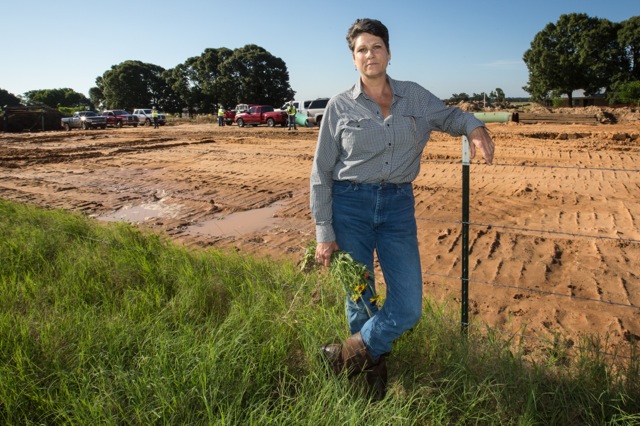It has been roughly twelve years since fracking launched the great shale rush in the U.S. and the biggest problem with the technology — how to safely dispose of the enormous quantities of toxic waste generated — remains unsolved.
In particular, regulators have struggled to fully understand or police the hazards posed by radioactivity found in fracking waste.
The most common form of radioactivity in shale waste comes from radium-226, which happens also to be an isotope that takes the longest to decay. To be exact, radium-226’s half-life of roughly 1,600 years means that well over a millennium and a half from now, more than half of the radium that fracking brings to the surface today will still be emitting dangerous radioactive particles.
Concern about the waste has taken on renewed urgency in light of a detailed report published in Environmental Health Perspectives (EHP), a peer-reviewed scientific journal which is backed by the National Institutes of Health. The study concluded that worrisome and extensive gaps in federal and state oversight of this radioactivity problem still persist.
“At the federal level, radioactive oil and gas waste is exempt from nearly all the regulatory processes the general public might expect would govern it,” the researchers wrote. “State laws are a patchwork.’”
This is not an entirely new finding. Several years ago, a New York Times investigative piece highlighted how the oil and gas industry routinely dumped radium-laced waste water into rivers. State regulators in Pennsylvania and the oil and gas industry adamantly denied there was a problem.
So what's changed? The recent academic study concludes that even several years later, worrisome oversight lapses remain. As such, the researchers wrote, there is continuing reason for concern.
“We are troubled by people drinking water that [could potentially have] radium-226 in it,” David Brown, a public health toxicologist with the Southwest Pennsylvania Environmental Health Project, told the researchers (insert in original). “When somebody calls us and says ‘is it safe to drink our water,’ the answer is ‘I don’t know.’”
































